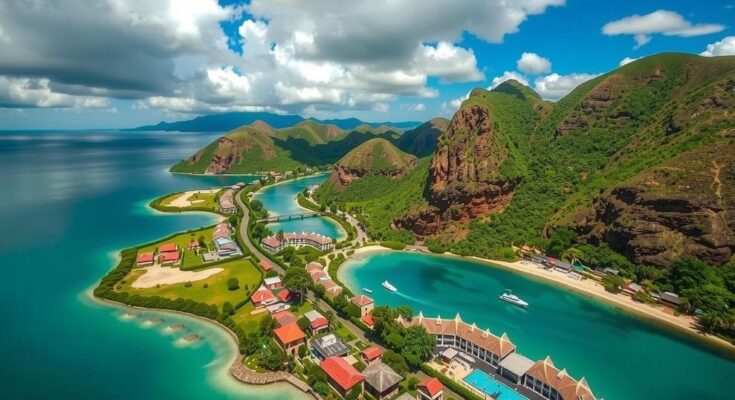Equatorial Guinea is the only Spanish-speaking nation in Africa, and it possesses significant oil reserves that historically contributed to its wealth. Governed by President Teodoro Nguema Mbasogo since a coup in 1979, the country faces economic challenges due to reliance on oil exports. Despite its wealth, the distribution is uneven. Equatorial Guinea’s small size and unique political landscape further shape its identity and development prospects.
Equatorial Guinea, officially known as the Republic of Equatorial Guinea, is a unique country located on the west coast of Central Africa. It is notable for being the only African nation where Spanish serves as an official language, a legacy of its colonial relationship with Spain. The nation marked its independence on October 12, 1968, distinguishing itself from a continent predominantly influenced by Portuguese, English, and French languages. Equatorial Guineans, approximately 1.67 million in number as of 2024, communicate in roughly 15 indigenous languages alongside Spanish. Economically, Equatorial Guinea has been historically recognized as one of the wealthiest countries in Africa in terms of per capita Gross Domestic Product (GDP), primarily due to its substantial oil reserves. Despite a 2023 economic recession that shifted the balance of wealth to other nations such as Seychelles, the nominal GDP stood at $11,813,908,448 in 2022. However, the wealth within the country is highly concentrated, resulting in significant inequality among its citizens. In addition to its economic indicators, Equatorial Guinea is among the smallest and least populated countries in mainland Africa, consisting of a mainland region, Río Muni, and several islands, including Bioko Island, which houses the capital, Malabo. The country’s geographical compactness does not diminish its influence, as it has a complex political history marked by authoritarian leadership. President Teodoro Obiang Nguema Mbasogo has governed Equatorial Guinea since 1979, making him the longest-serving leader in Africa. His regime was initiated through a coup that overthrew Francisco Macias Nguema, resulting in significant demographic impacts including mass exodus and loss of life. While some restrictions have been eased notably regarding religious practices, Nguema has retained stringent control over the country, with his son as vice president. Furthermore, the nation’s economy is heavily reliant on oil; more than 90% of Equatorial Guinea’s exports consist of petroleum products. This dependence makes the economy vulnerable to fluctuations in global oil prices, highlighting the need for diversification to ensure long-term stability. Thus, despite recent controversies and scandals, Equatorial Guinea presents a compelling study of a nation embodying both challenges and opportunities.
Equatorial Guinea, an African nation with a unique linguistic heritage and complex socio-political landscape, is primarily characterized by its historical connection to Spain, being the only Spanish-speaking country in Africa. This distinctive trait is integral to its national identity, alongside its classification as one of the wealthiest, yet economically uneven, nations on the continent. Understanding the dynamics of its economy, governance, and demographic features provides insight into the ongoing developments within this relatively small nation.
In conclusion, Equatorial Guinea encapsulates a multifaceted narrative of historical significance, economic complexity, and political dynamics. As the only Spanish-speaking country in Africa, it holds a unique place on the continent. With considerable oil wealth tempered by inequitable distribution and a lengthy period of authoritarian rule under President Nguema, the country faces challenges that warrant cautious observation. Moving forward, diversifying its economy remains crucial for ensuring sustainable development and improved living standards among its citizens.
Original Source: www.pulse.ng




